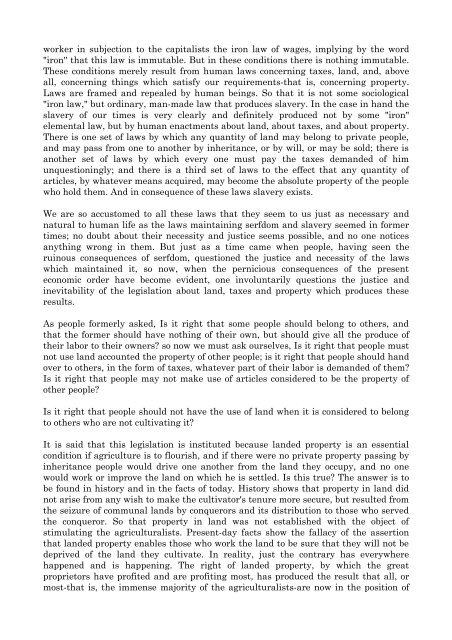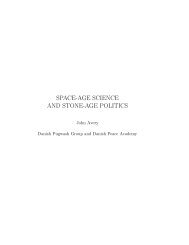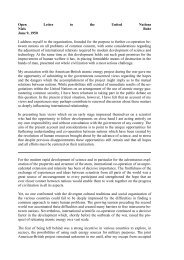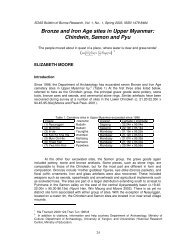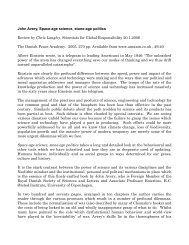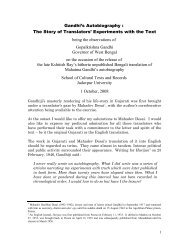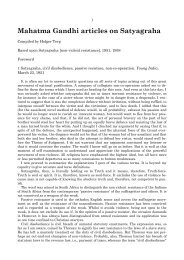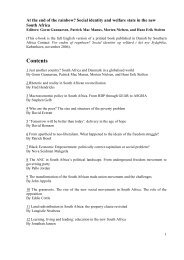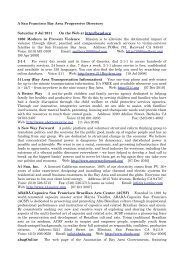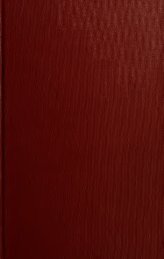THE SLAVERY OF OUR TIMES PREFACE / INTRODUCTION
THE SLAVERY OF OUR TIMES PREFACE / INTRODUCTION
THE SLAVERY OF OUR TIMES PREFACE / INTRODUCTION
Create successful ePaper yourself
Turn your PDF publications into a flip-book with our unique Google optimized e-Paper software.
worker in subjection to the capitalists the iron law of wages, implying by the word<br />
"iron'' that this law is immutable. But in these conditions there is nothing immutable.<br />
These conditions merely result from human laws concerning taxes, land, and, above<br />
all, concerning things which satisfy our requirements-that is, concerning property.<br />
Laws are framed and repealed by human beings. So that it is not some sociological<br />
"iron law," but ordinary, man-made law that produces slavery. In the case in hand the<br />
slavery of our times is very clearly and definitely produced not by some "iron"<br />
elemental law, but by human enactments about land, about taxes, and about property.<br />
There is one set of laws by which any quantity of land may belong to private people,<br />
and may pass from one to another by inheritance, or by will, or may be sold; there is<br />
another set of laws by which every one must pay the taxes demanded of him<br />
unquestioningly; and there is a third set of laws to the effect that any quantity of<br />
articles, by whatever means acquired, may become the absolute property of the people<br />
who hold them. And in consequence of these laws slavery exists.<br />
We are so accustomed to all these laws that they seem to us just as necessary and<br />
natural to human life as the laws maintaining serfdom and slavery seemed in former<br />
times; no doubt about their necessity and justice seems possible, and no one notices<br />
anything wrong in them. But just as a time came when people, having seen the<br />
ruinous consequences of serfdom, questioned the justice and necessity of the laws<br />
which maintained it, so now, when the pernicious consequences of the present<br />
economic order have become evident, one involuntarily questions the justice and<br />
inevitability of the legislation about land, taxes and property which produces these<br />
results.<br />
As people formerly asked, Is it right that some people should belong to others, and<br />
that the former should have nothing of their own, but should give all the produce of<br />
their labor to their owners? so now we must ask ourselves, Is it right that people must<br />
not use land accounted the property of other people; is it right that people should hand<br />
over to others, in the form of taxes, whatever part of their labor is demanded of them?<br />
Is it right that people may not make use of articles considered to be the property of<br />
other people?<br />
Is it right that people should not have the use of land when it is considered to belong<br />
to others who are not cultivating it?<br />
It is said that this legislation is instituted because landed property is an essential<br />
condition if agriculture is to flourish, and if there were no private property passing by<br />
inheritance people would drive one another from the land they occupy, and no one<br />
would work or improve the land on which he is settled. Is this true? The answer is to<br />
be found in history and in the facts of today. History shows that property in land did<br />
not arise from any wish to make the cultivator's tenure more secure, but resulted from<br />
the seizure of communal lands by conquerors and its distribution to those who served<br />
the conqueror. So that property in land was not established with the object of<br />
stimulating the agriculturalists. Present-day facts show the fallacy of the assertion<br />
that landed property enables those who work the land to be sure that they will not be<br />
deprived of the land they cultivate. In reality, just the contrary has everywhere<br />
happened and is happening. The right of landed property, by which the great<br />
proprietors have profited and are profiting most, has produced the result that all, or<br />
most-that is, the immense majority of the agriculturalists-are now in the position of


